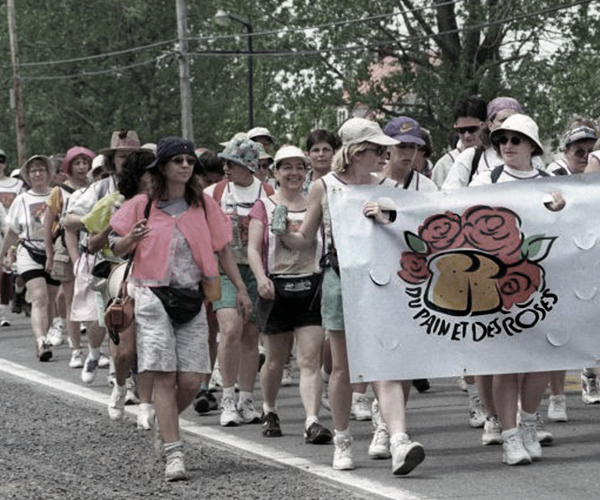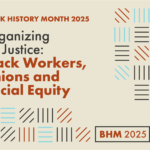
On December 1, 1911, The American Magazine published a poem with the title “Bread and Roses” for the very first time. Over the next few years, it would become an anthem of the trade union movement, linked to the struggle for social justice and equality.
Now a favourite anthem of the labour movement around the world, James Oppenheim was inspired to write the poem by a slogan “Bread for all, and Roses, too”. When his poem was published again in 1912, the slogan was attributed to women trade unionists – and the association stuck.
Oppenheim’s poem was also associated with the 1912 Lawrence textile strike, often referred to as the “Bread and Roses” strike. Led by immigrant women workers, the strike developed new tactics that have become standard procedures in labour disputes, among them the moving picket line to get around loitering charges.
It received a new lease on life with the resurgence of the women’s movement in the late 1960s and the interest in the role played by women in trade union history. In 1974, Mimi Fariña composed the now familiar tune that has become a standard for women in the labour movement.
In Canada, the slogan was reborn as the theme of the “Bread and Roses March” and the “World March of Women” that it inspired.
The first Bread and Roses March, an initiative of the Fédération des femmes du Québec, began on 26 May 1995. Over the course of 10 days, more than 800 Québécoise demonstrators set off from Montréal, Longueuil and Rivière-du-Loup and converged on Québec City with nine demands of the government to combat poverty.
The theme song of the march, Du pain et des roses, composed by Hélène Pedneault and Marie-Claire Séguin remains an anthem of the labour movements of Quebec and Canada.
BREAD AND ROSES
As we go marching, marching, in the beauty of the day
A million darkened kitchens, a thousand mill lofts gray
Are touched with all the radiance that a sudden sun discloses
For the people hear us singing, bread and roses, bread and roses.
As we come marching, marching, we battle too, for men,
For they are in the struggle and together we shall win.
Our days shall not be sweated from birth until life closes,
Hearts starve as well as bodies, give us bread, but give us roses.
As we come marching, marching, un-numbered women dead
Go crying through our singing their ancient call for bread,
Small art and love and beauty their trudging spirits knew
Yes, it is bread we. fight for, but we fight for roses, too.
As we go marching, marching, we’re standing proud and tall.
The rising of the women means the rising of us all.
No more the drudge and idler, ten that toil where one reposes,
But a sharing of life’s glories, bread and roses, bread and roses.
—–








